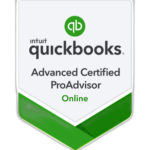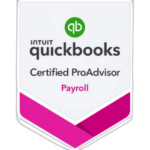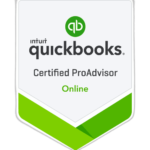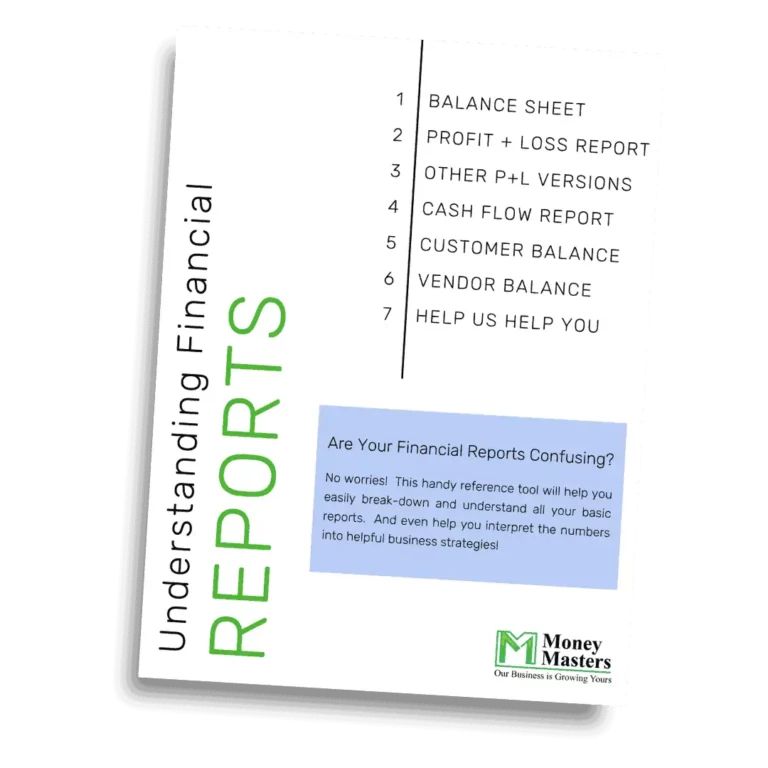As a small business owner, juggling various responsibilities is part of the daily grind. From overseeing operations and managing staff to handling marketing and customer relations, the list of tasks can seem endless. Amidst this whirlwind, financial management is one area where the importance of expertise cannot be overstated. Hiring a professional bookkeeper can be a game-changer, offering numerous benefits that can help ensure the long-term success and smooth operation of your business.
The Value of a Professional QuickBooks Bookkeeper
1. Mastery of the Software
Understanding how to use QuickBooks Online efficiently and effectively requires hours of practice and training. A QuickBooks Online Certified Professional Advisor will save you time and headaches.
2. Expertise and Accuracy
Bookkeeping is more than just recording transactions—it’s about maintaining accurate and detailed financial records. A professional bookkeeper brings specialized knowledge and skills to the table, ensuring that your records are accurate and up-to-date. This precision helps in avoiding costly errors and discrepancies that could impact your financial statements and tax filings.
3. Time Savings
Managing your business’s finances can be incredibly time-consuming. By delegating this task to a professional bookkeeper, you free up valuable time that can be better spent on core business activities such as strategy development, customer engagement, and growth initiatives. This shift in focus allows you to concentrate on what you do best while leaving the financial details to an expert.
4. Regulatory Compliance
Navigating the complexities of tax regulations and financial reporting can be daunting. A professional bookkeeper is well-versed in the latest tax laws and compliance requirements, reducing the risk of errors that could lead to penalties or legal issues. They ensure that all financial activities are recorded accurately, and that necessary reports and documents are prepared in accordance with regulatory standards.
5. Enhanced Financial Insights
A skilled bookkeeper provides more than just data entry—they offer valuable financial insights. With a clear picture of your financial situation, you can make informed decisions regarding budgeting, forecasting, and strategic planning. Regular financial reports and analyses help you understand trends, manage cash flow, and identify areas for cost savings or investment opportunities.
6. Improved Cash Flow Management
Effective cash flow management is crucial for the survival and growth of any business. A bookkeeper tracks all incoming and outgoing funds, ensuring that you have a clear view of your cash flow at all times. This helps in avoiding cash shortfalls, managing bills and invoices efficiently, and making timely financial decisions that keep your business running smoothly.
7. Stress Reduction
Financial management can be a major source of stress for business owners, especially when combined with other responsibilities. A professional bookkeeper alleviates this burden by handling the complexities of financial record-keeping and ensuring that everything is in order. This peace of mind allows you to focus on growing your business rather than worrying about financial inaccuracies or missed deadlines.
8. Scalability and Growth
As your business grows, so do its financial complexities. A bookkeeper can scale their services to match your expanding needs, providing support that evolves with your business. Whether you’re dealing with increased transaction volumes, more intricate financial operations, or additional regulatory requirements, a bookkeeper can adapt and offer solutions that facilitate smooth growth.
Choosing the Right Bookkeeper
When selecting a bookkeeper for your small business, consider the following factors:
- Experience and Qualifications: Look for a bookkeeper with relevant experience in your industry and the necessary qualifications. Their expertise should align with your specific financial needs and business structure.
- Reputation and References: Check references and reviews to gauge the bookkeeper’s reliability and performance. A strong reputation and positive feedback from other clients are good indicators of their competence.
- Technology Proficiency: Ensure that the bookkeeper is adept at using QuickBooks Online. This proficiency can enhance efficiency and accuracy in financial management.
- Communication Skills: Effective communication is key to a successful working relationship. Choose a bookkeeper who is approachable, responsive, and able to explain financial concepts clearly.
Conclusion
For small business owners, hiring a professional bookkeeper is not merely an administrative decision but a strategic investment in the health and success of your business. With their expertise, you gain accuracy, efficiency, and valuable financial insights that can drive better decision-making and growth. By outsourcing your bookkeeping needs, you not only ensure compliance and accuracy but also free yourself to focus on what truly matters—building and expanding your business.
Have questions? CLICK HERE to schedule a free consultation. Get back to doing what you really want to do, and 𝐥𝐞𝐚𝐯𝐞 𝐲𝐨𝐮𝐫 𝐛𝐨𝐨𝐤𝐤𝐞𝐞𝐩𝐢𝐧𝐠 𝐭𝐨 𝐦𝐞.




